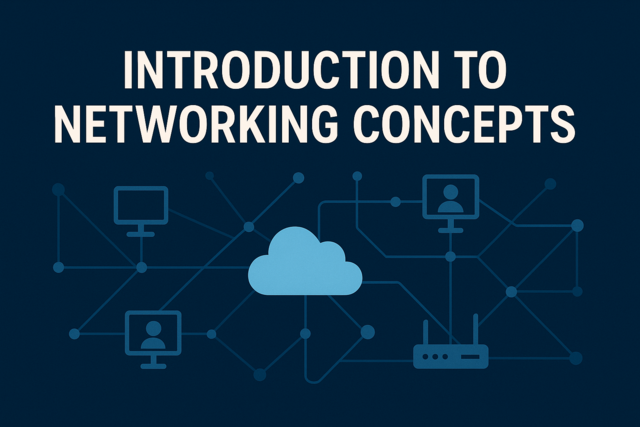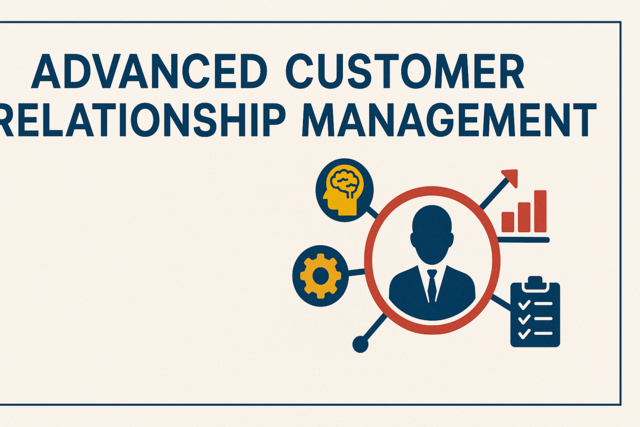Online Class: Data Visualization Techniques

no certificate
with CEU Certificate*
-
15Lessons
-
22Exams &
Assignments -
5Hours
average time -
0.5CEUs
Course Description
Data Visualization Techniques: Your Gateway to Transformative Insights
Imagine a world where data isn't just a stream of numbers, but a vibrant tapestry of stories waiting to be uncovered. Welcome to the world of Data Visualization Techniques—where your journey transforms raw data into a compelling visual experience, enabling you to communicate complex insights effortlessly.
In today's information-driven era, the ability to communicate data visually is as crucial as the data itself. Think about the last presentation you attended where data was presented in a flat, uninspiring format. Now envision the opposite: a presentation where every chart pulses with clarity, every graph beckons attention, and each dashboard speaks volumes without uttering a single word. That's the transformative power of data visualization, and this course is your stepping stone toward mastering this art.
From the moment you enroll, you'll delve into a rich ecosystem of visualization techniques that turn data comprehension into an intuitive, interactive experience. The course is not merely a sequence of lessons—it's a narrative journey where each module unveils new possibilities. You will discover how the nuances of color, shape, and layout can redefine not only how you present data but how your audience understands and acts upon it.
Picture yourself decoding the mysteries of geospatial data—not by wading through complex datasets, but by transforming them into vibrant heatmaps and choropleth maps. You'll learn to tell stories where geography becomes the backdrop to insights that drive change, illuminating paths for urban planners, environmental activists, and business strategists alike.
As you progress, you'll meet Matplotlib and D3.js—tools not merely for crafting graphs but for pioneering data-driven narratives that captivate and inform. You'll learn to harness the power of these tools, turning every interaction with your data into an opportunity for storytelling and connection. With them, you'll discover how to craft interactive visualizations that strike a perfect balance between aesthetic allure and analytical depth.
But data visualization isn't just about creating beautiful graphics—it's about conveying a message that resonates deeply with the audience. This course guides you in understanding your audience's unique needs, tailoring every visualization to evoke understanding and action. Whether you're creating dashboards for strategic planning or crafting infographics to sway public opinion, you'll possess the skills to make your data speak powerfully and persuasively.
As you navigate through Tableau and Power BI, you'll redefine what it means to collaborate through data. These platforms are your allies in transforming complex data sets into dynamic visuals that both individuals and teams can effortlessly interpret. With real-time updates and seamless integration capabilities, you'll lead projects with unprecedented efficiency and insight, positioning yourself as an indispensable asset in any data-driven endeavor.
Moreover, this course equips you with cutting-edge anomaly detection techniques. Imagine having the foresight to identify anomalies in real time, providing proactive solutions before issues snowball—a skill as valuable as the insights it uncovers.
The journey culminates in synthesizing all that you've learned into audience-centric strategies that transcend traditional data visualizations. You will craft narratives that demystify data, turning abstract figures into actionable insights. By the end of the course, audiences won't just absorb your data; they'll live it, understand it, and use it to make decisions that matter.
Our Data Visualization Techniques course is more than an educational experience; it's an invitation to redefine your relationship with data, transforming it from static statistics to compelling stories of impact. Join us, and emerge as a visionary who doesn't just convey data, but one who inspires understanding and change. The time is now—embark on your journey where data comes alive, and every insight is an opportunity awaiting discovery.
- Completely Online
- Self-Paced
- 6 Months to Complete
- 24/7 Availability
- Start Anytime
- PC & Mac Compatible
- Android & iOS Friendly
- Accredited CEUs

Course Lessons
Lesson 1. Unleashing the Power of Data Visualization
Data visualization fosters improved data comprehension, acting as a vital bridge between technical deep-dives and high-level overviews. Through innovative charts and strategically-designed dashboards, users from all backgrounds can engage meaningfully with data trends and patterns.Lesson 2. Decoding Data Visualization
Mastering the principles of visual encoding, such as position on a common scale and color intensity, is essential for transforming static data into dynamic visual narratives. Integrating these techniques within dashboards and reports enhances interpretability and empowers audiences, enabling informed decision-making.Lesson 3. Chart Compatibility: The Key to Masterful Data Visualization
Geospatial data benefits from heatmaps or choropleth maps, providing spatial context for environmental or demographic studies. These visualizations help illustrate geographic patterns, thereby informing planning and intervention strategies.Lesson 4. Interactive Visualization: Bridging Data and Storytelling
Balancing aesthetics and functionality is crucial in designing interactive visualizations, ensuring they are both appealing and practical for data analysis. By employing thoughtful design elements like harmonious color palettes and intuitive interfaces, visualizations remain engaging while providing meaningful insights.Lesson 5. Know Your Audience, Craft Your Story
Mastering the subtleties of audience understanding allows for customized narratives, whether it's through interactive elements for exploration or feedback loops for continuous improvement. The emotional and cultural resonance within data stories can transform abstract figures into universally relatable narratives.Lesson 6. Crafting User-Centric Dashboards: Principles and Practices
As modern tools like AI propel dashboard innovation, users gain predictive insights and enhanced interactivity for informed strategic planning. These advanced, scalable solutions encourage industry-wide application, from financial services to healthcare, driving agile responses to data trends.Lesson 7. The Art of Color: Elevating Your Data Visualizations
Color theory, when applied to data visualization, helps translate complex data into intuitive visual narratives by expertly guiding the selection and combination of colors. Emphasizing concepts like complementary and analogous hues ensures both engaging and accessible designs, transforming charts and graphs into clear and compelling storytellers.Lesson 8. Visual Storytelling with Matplotlib
Continuous advancements in Matplotlib emphasize refined control features, ensuring it stays relevant in meeting evolving visualization needs. As data visualization becomes a critical skill, proficiency in Matplotlib distinguishes individuals as adept communicators of insightful, data-driven narratives.Lesson 9. Crafting Data Narratives: Unleashing the Power of D3.js
Originally created by Mike Bostock, D3.js is an open-source JavaScript library that seamlessly binds data to DOM elements, creating dynamic, interactive visualizations. Its robust capabilities support complex datasets and offer a modern approach to data storytelling with tools like tooltips, dynamic filters, and transitions.Lesson 10. Spatial Insights: From Data to Decision-Making
Technological advancements like GIS and mobile GPS have made geospatial analysis more accessible, empowering broad-scale geographic examination. Modern visualization tools like heat maps and machine learning integrations have refined data interpretation, vital in sectors ranging from agriculture to urban development, crafting predictive analytics and strategic innovation.Lesson 11. Crafting Impactful Infographics: Engaging Audiences with Visual Narratives
Effective infographics combine understanding audience needs with purpose-driven design, converting data into compelling visual stories to inform, persuade, or engage audiences. By using core design principles and data visualization techniques, they create meaningful narratives that are easy to understand, visualize, and remember.Lesson 12. Unlocking Insights: The Power of Data Visualization with Tableau and Power BI
Tableau and Power BI enable users to efficiently visualize data with features like drag-and-drop functionality and real-time updates; these platforms make data analysis accessible, enhancing both individual proficiency and collaborative project success. Each tool’s unique strengths cater to diverse needs, from exploratory analysis in Tableau to Power BI’s seamless integration within the Microsoft ecosystem.Lesson 13. Visualizing the Complexities of Big Data for Actionable Insights
Harnessing big data requires overcoming challenges associated with its volume, velocity, variety, and veracity, necessitating advanced storage solutions and data-mining algorithms. Visualization transforms raw data into insightful narratives, enabling businesses, policymakers, and communities to make informed decisions, highlighting the importance of data accuracy and scalability.Lesson 14. Advanced Anomaly Detection in Data Visualization
Utilizing statistical and machine learning methods, anomaly detection in data visualization identifies significant deviations in datasets, guiding proactive interventions. This approach facilitates clearer data interpretation, enabling users to uncover valuable insights in large volumes of data dynamically.Lesson 15. Audience-Centric Data Visualization Strategies
Audience-centric data visualization transcends mere data presentation by emphasizing storytelling and interactive design, creating a narrative that resonates with viewers across all expertise levels. By incorporating feedback and understanding cultural nuances, visualizations help demystify data, transforming it into actionable insights.
Learning Outcomes
- Define key elements of an effective data visualization and demonstrate their importance in enhancing understanding and decision-making.
- Identify and apply various data visualization techniques to accurately represent and communicate complex datasets to diverse audiences.
- Demonstrate proficiency in selecting appropriate visual channels, such as size, color, and position, to effectively convey quantitative and qualitative data.
- Recognize and apply the principles of visual encoding to create clear and compelling data visualizations that enhance comprehension.
- Compare and contrast different data types and their ideal chart representations to identify the most effective visualizations for conveying complex data narratives.
- Demonstrate the ability to accurately select and apply appropriate chart types for quantitative, qualitative, and multivariate data to enhance data visualization insights.
- Demonstrate understanding of user-centric design by crafting intuitive interfaces that cater to varying levels of expertise, ensuring accessibility and enhanced user interaction
- Recognize the core principles of interactivity in visualization by identifying user engagement techniques that enhance data exploration and insight discovery
- Demonstrate the ability to customize a data narrative by selecting suitable visuals and narrative structures based on audience needs and cultural contexts.
- Recognize and classify the audience's expertise level to determine appropriate data visualization techniques for effective storytelling.
- Define user-centric design principles to evaluate the effectiveness of a given dashboard in terms of clarity, consistency, and accessibility.
- Demonstrate the ability to apply interactivity and customization features within a dashboard to enhance user engagement and data interpretation.
- Recognize and apply the principles of color theory to select appropriate color schemes that enhance data visualization interpretability and engagement.
- Demonstrate mastery of lesson content at levels of 70% or higher.
Additional Course Information

- Document Your Lifelong Learning Achievements
- Earn an Official Certificate Documenting Course Hours and CEUs
- Verify Your Certificate with a Unique Serial Number Online
- View and Share Your Certificate Online or Download/Print as PDF
- Display Your Certificate on Your Resume and Promote Your Achievements Using Social Media

Choose Your Subscription Plan
No Certificate / No CEUs
This course only
| Includes certificate | X |
| Includes CEUs | X |
| Self-paced |

|
| Instructor support |

|
| Time to complete | 6 months |
| No. of courses | 1 course |
Certificate & CEUs
This course only
| Includes certificate |

|
| Includes CEUs |

|
| Self-paced |

|
| Instructor support |

|
| Time to complete | 6 months |
| No. of courses | 1 course |
Certificates & CEUs
Includes all 600+ courses
| Includes certificate |

|
| Includes CEUs |

|
| Self-paced |

|
| Instructor support |

|
| Time to complete | 12 Months |
| No. of courses | 600+ |
Certificates & CEUs
Includes all 600+ courses
| Includes certificate |

|
| Includes CEUs |

|
| Self-paced |

|
| Instructor support |

|
| Time to complete | 24 Months |
| No. of courses | 600+ |
Related Courses
-
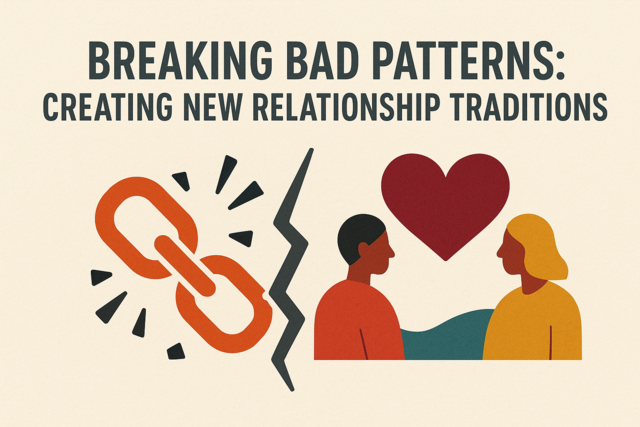 5 hours
0.5 CEUs
Breaking Bad Patterns: Creating New Relationship Traditions
+ More Info
5 hours
0.5 CEUs
Breaking Bad Patterns: Creating New Relationship Traditions
+ More Info
-
 3 hours
0.3 CEUs
Innovative Solutions for Business Growth
+ More Info
3 hours
0.3 CEUs
Innovative Solutions for Business Growth
+ More Info
-
 7 hours
0.7 CEUs
The Art of Manifesting Your Dreams
+ More Info
7 hours
0.7 CEUs
The Art of Manifesting Your Dreams
+ More Info
-
 6 hours
0.6 CEUs
Beyond Glamour: Women's Luxury Fashion Unveiled
+ More Info
6 hours
0.6 CEUs
Beyond Glamour: Women's Luxury Fashion Unveiled
+ More Info
-
 3 hours
0.3 CEUs
Unpacking Attachment Styles: Keys to Healthier Relationships
+ More Info
3 hours
0.3 CEUs
Unpacking Attachment Styles: Keys to Healthier Relationships
+ More Info
-
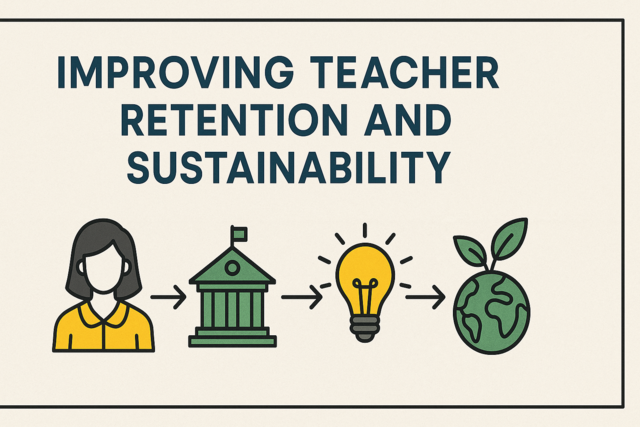 3 hours
0.3 CEUs
Improving Teacher Retention and Sustainability
+ More Info
3 hours
0.3 CEUs
Improving Teacher Retention and Sustainability
+ More Info
-
 5 hours
0.5 CEUs
Building Inclusive Classrooms
+ More Info
5 hours
0.5 CEUs
Building Inclusive Classrooms
+ More Info
-
 4 hours
0.4 CEUs
Design Dynamics: The Rise of Contemporary Luxury Designers
+ More Info
4 hours
0.4 CEUs
Design Dynamics: The Rise of Contemporary Luxury Designers
+ More Info
-
 3 hours
0.3 CEUs
Customer Service Excellence
+ More Info
3 hours
0.3 CEUs
Customer Service Excellence
+ More Info
-
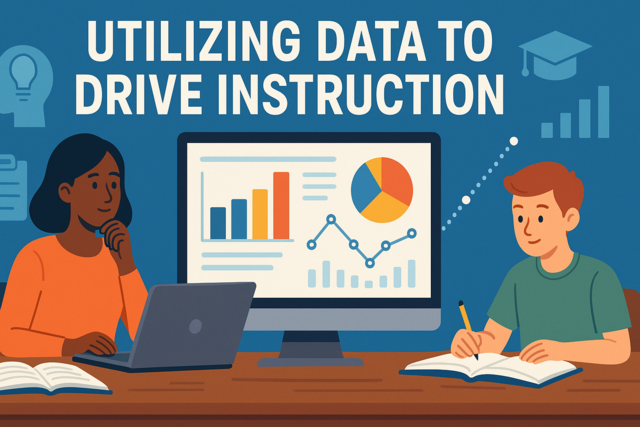 5 hours
0.5 CEUs
Utilizing Data to Drive Instruction
+ More Info
5 hours
0.5 CEUs
Utilizing Data to Drive Instruction
+ More Info
-
 5 hours
0.5 CEUs
Metaphysical Realms: A Journey Beyond
+ More Info
5 hours
0.5 CEUs
Metaphysical Realms: A Journey Beyond
+ More Info
-
 3 hours
0.3 CEUs
The Empathy Effect: Enhancing Communication with Loved Ones
+ More Info
3 hours
0.3 CEUs
The Empathy Effect: Enhancing Communication with Loved Ones
+ More Info
-
 7 hours
0.7 CEUs
Trauma Typologies: Exploring Varieties of Psychological Wounds
+ More Info
7 hours
0.7 CEUs
Trauma Typologies: Exploring Varieties of Psychological Wounds
+ More Info
-
 7 hours
0.7 CEUs
Leadership in Educational Settings
+ More Info
7 hours
0.7 CEUs
Leadership in Educational Settings
+ More Info
-
 4 hours
0.4 CEUs
Raising Emotionally Intelligent Children: A Guide for Parents
+ More Info
4 hours
0.4 CEUs
Raising Emotionally Intelligent Children: A Guide for Parents
+ More Info
-
 7 hours
0.7 CEUs
Self-Care and Wellness Practices
+ More Info
7 hours
0.7 CEUs
Self-Care and Wellness Practices
+ More Info
-
 3 hours
0.3 CEUs
Addressing Trauma in Students with Disabilities
+ More Info
3 hours
0.3 CEUs
Addressing Trauma in Students with Disabilities
+ More Info
-
 5 hours
0.5 CEUs
Bridging Generational Gaps: Understanding Family Dynamics
+ More Info
5 hours
0.5 CEUs
Bridging Generational Gaps: Understanding Family Dynamics
+ More Info
-
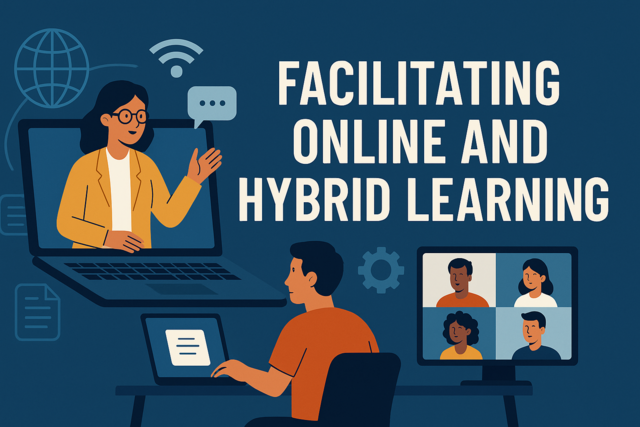 4 hours
0.4 CEUs
Facilitating Online and Hybrid Learning
+ More Info
4 hours
0.4 CEUs
Facilitating Online and Hybrid Learning
+ More Info
-
 6 hours
0.6 CEUs
Legacy Building: Creating a Family Culture to Last
+ More Info
6 hours
0.6 CEUs
Legacy Building: Creating a Family Culture to Last
+ More Info
-
 3 hours
0.3 CEUs
The Science of Happiness in Family Life
+ More Info
3 hours
0.3 CEUs
The Science of Happiness in Family Life
+ More Info
-
 7 hours
0.7 CEUs
Integrating Arts into the Curriculum
+ More Info
7 hours
0.7 CEUs
Integrating Arts into the Curriculum
+ More Info
-
 7 hours
0.7 CEUs
Designing Interdisciplinary Curricula
+ More Info
7 hours
0.7 CEUs
Designing Interdisciplinary Curricula
+ More Info
-
 7 hours
0.7 CEUs
Developing Academic Language Skills
+ More Info
7 hours
0.7 CEUs
Developing Academic Language Skills
+ More Info
-
 3 hours
0.3 CEUs
Transcend Trends: Creating Your Signature Look
+ More Info
3 hours
0.3 CEUs
Transcend Trends: Creating Your Signature Look
+ More Info
-
 4 hours
0.4 CEUs
Breathwork for Emotional Balance
+ More Info
4 hours
0.4 CEUs
Breathwork for Emotional Balance
+ More Info
-
 3 hours
0.3 CEUs
Exploring Parallel Universes
+ More Info
3 hours
0.3 CEUs
Exploring Parallel Universes
+ More Info
-
 4 hours
0.4 CEUs
Preparing for a Career Change
+ More Info
4 hours
0.4 CEUs
Preparing for a Career Change
+ More Info
-
 6 hours
0.6 CEUs
The Influence Index: How Environment Shapes Relationships
+ More Info
6 hours
0.6 CEUs
The Influence Index: How Environment Shapes Relationships
+ More Info
-
 4 hours
0.4 CEUs
Sound Healing: Vibrations for Wellness
+ More Info
4 hours
0.4 CEUs
Sound Healing: Vibrations for Wellness
+ More Info
-
 4 hours
0.4 CEUs
Rising Above Resentment: Healing Through Forgiveness
+ More Info
4 hours
0.4 CEUs
Rising Above Resentment: Healing Through Forgiveness
+ More Info
-
 6 hours
0.6 CEUs
Transition Planning: From School to Adult Life
+ More Info
6 hours
0.6 CEUs
Transition Planning: From School to Adult Life
+ More Info
-
 4 hours
0.4 CEUs
The Elemental Nexus: Integrating New Age Alchemy and Druidic Rituals
+ More Info
4 hours
0.4 CEUs
The Elemental Nexus: Integrating New Age Alchemy and Druidic Rituals
+ More Info
-
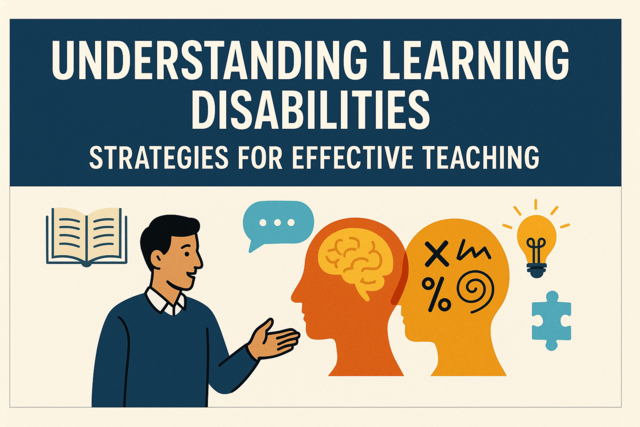 7 hours
0.7 CEUs
Understanding Learning Disabilities: Strategies for Effective Teaching
+ More Info
7 hours
0.7 CEUs
Understanding Learning Disabilities: Strategies for Effective Teaching
+ More Info
-
 5 hours
0.5 CEUs
Footprint of Fashion: Trends Shaping Modern Luxury Brands
+ More Info
5 hours
0.5 CEUs
Footprint of Fashion: Trends Shaping Modern Luxury Brands
+ More Info
-
 5 hours
0.5 CEUs
Empowering Student Voice through Leadership
+ More Info
5 hours
0.5 CEUs
Empowering Student Voice through Leadership
+ More Info
-
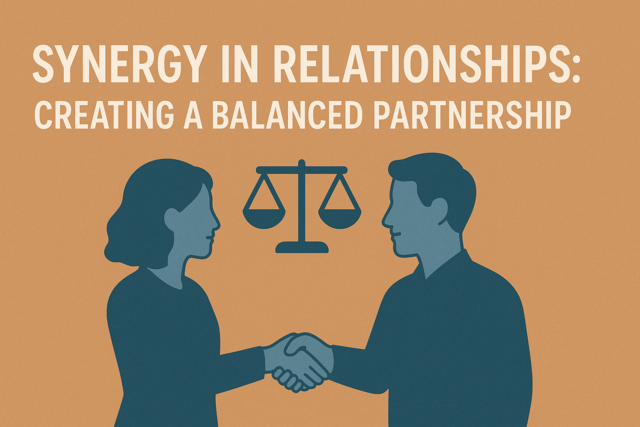 3 hours
0.3 CEUs
Synergy in Relationships: Creating a Balanced Partnership
+ More Info
3 hours
0.3 CEUs
Synergy in Relationships: Creating a Balanced Partnership
+ More Info
-
 7 hours
0.7 CEUs
Research Frontiers: Contemporary Studies in Trauma and Recovery
+ More Info
7 hours
0.7 CEUs
Research Frontiers: Contemporary Studies in Trauma and Recovery
+ More Info
-
 5 hours
0.5 CEUs
Generational Patterns: How Narcissism Perpetuates Dysfunction
+ More Info
5 hours
0.5 CEUs
Generational Patterns: How Narcissism Perpetuates Dysfunction
+ More Info


